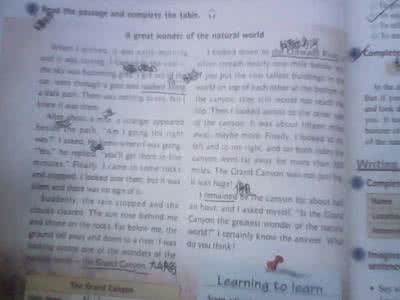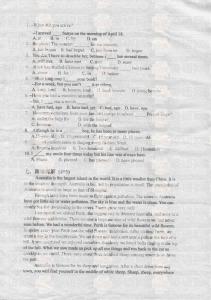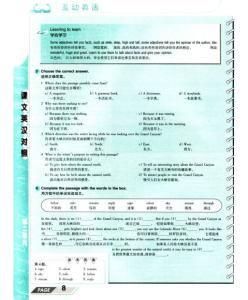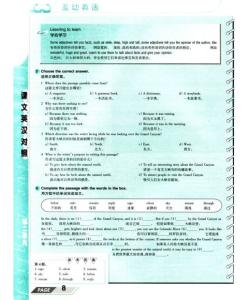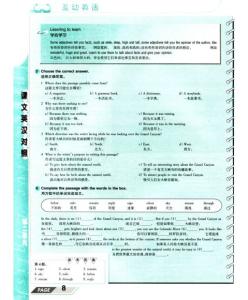临近期末的时候,对于初三英语的复习要怎样有针对性做练习呢?一时间还没头绪的话,不妨和小编一起来做份外研版初三上册英语Module 5测试试卷,希望对各位有帮助!
外研版初三上册英语Module 5测试试卷
Ⅱ. 单项选择(10分)
1. The students will have a physics in the laboratory this afternoon.
A. test B. speech
C. experiment D. task
2. The children are still upstairs. Go and get them to come for breakfast.
A. to downstairs B. from downstairs
C. downstairs D. downstair
3. His strict father is going to him for stealing a cookie.
A. reward B. punish C. win D. shout
4. —I hear you have to get up early every morning.
—Right. It’s one of the of my family.
A. plans B. jobs C. programs D. rules
5. —The box is too heavy to carry. What’s in it?
—Oh, it is books.
A. filled with B. covered with
C. used for D. asked for
6. Compare this car that one, and you’ll find the differences between them.
A. of B. with C. in D. at
7. — sweet song it is!
—Yeah, it’s My Heart Will Go On sung by Celine Dion.
A. How B. How a
C. What a D. What
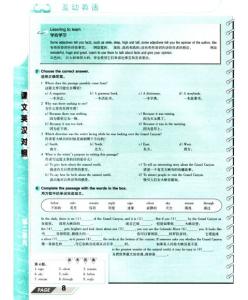
8. The news that the president was murdered spread the country.
A. all B. whole
C. different D. around
9. If anyone to join our basketball club, basketball every day.
A. want; practice B. wants; practices
C. wants; practice D. want; practicing
10. —She sold her treasures to cure her mother’s illness, even though it was her own wishes.
—It’s so kind her.
A. against; of B. above; of
C. on; for D. for; for
Ⅲ. 完形填空(20分)
What is a museum? A museum is a good place to keep 1 and beautiful things. A museum may be a place to learn about science. A museum can be a place 2 art of humans or animals.
What is inside a museum? Some museums 3 old cars and airplanes. 4 museums have pictures and sculptures. Others have rocks and old bones. One museum even has 5 coal mine inside!
Many cities have museums. Some very small 6 have museums, 7 . Indianapolis has a 8 museum. Children do not have to pay to get in. Children often go to the museum. They like 9 at the dinosaur bones. They see a white bear which is ten feet tall. They go inside an old log cabin(小木屋). On Saturday, Indianapolis children can 10 talks about animals and trees.
1. A. new B. old C. good D. important
2. A. for B. in C. about D. on
3. A. has B. have C. there is D. there are
4. A. A bit B. A little C. Much D. Many
5. A. the B. an C. a D. /
6. A. homes B. towns C. villages D. countries
7. A. too B. also C. either D. neither
8. A. adults’ B. people’s C. children’s D. boy’s
9. A. see B. to see C. look D. to look
10. A. listen B. listening C. hear D. hearing
 爱华网
爱华网